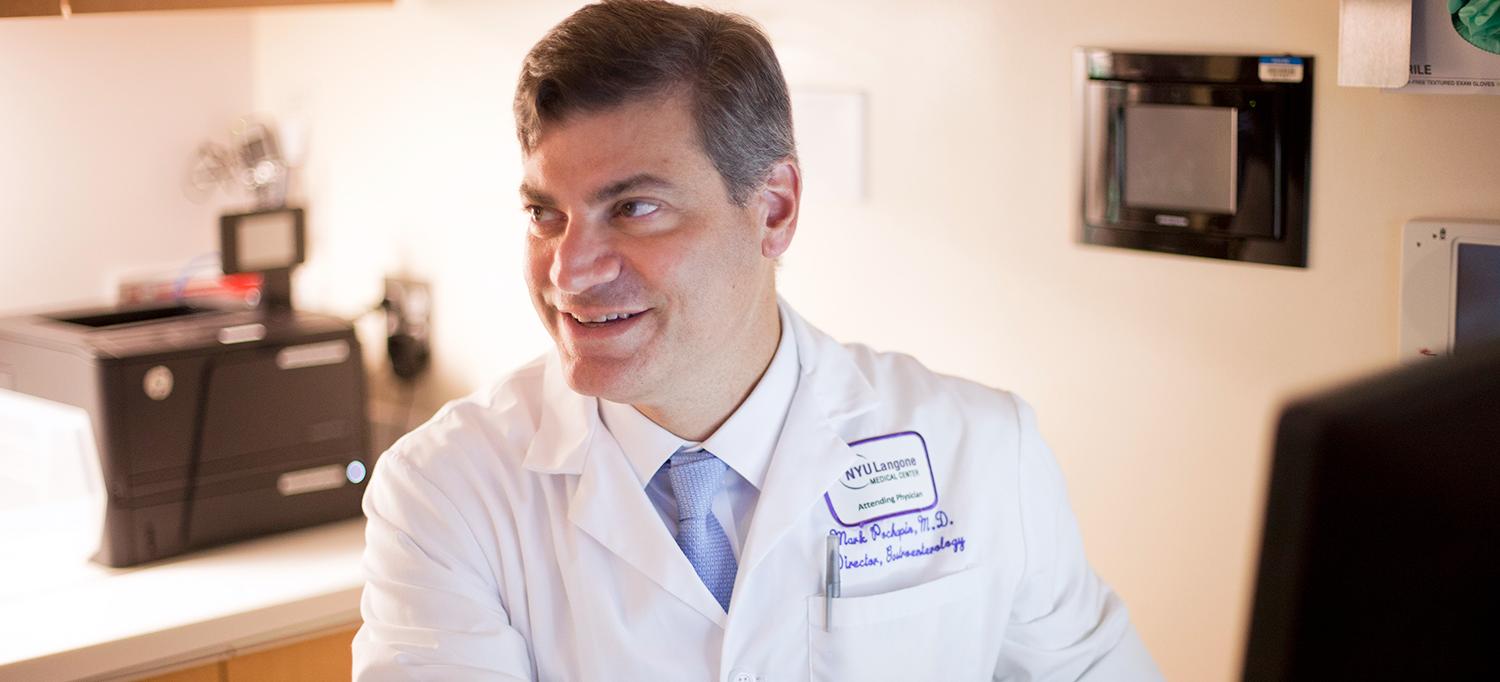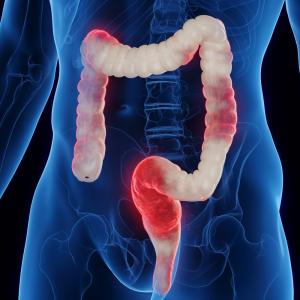Gastroenterologists Are Searching for Answers & Lifesaving Solutions for a Rise in Colorectal Cancer Among Younger Adults

Mark B. Pochapin, MD, the Shotz/Leeds Professor of Gastroenterology, discusses new screening guidelines for colorectal cancer.
Photo: John Abbott
Last May, the American Cancer Society (ACS) became the first national organization to recommend that adults of average risk for colorectal cancer begin routine screening at age 45 instead of 50. The revised guidelines came on the heels of an alarming rise in rates of colorectal cancer among younger adults, coupled with new data showing the lifesaving benefits of early screening.
We recently sat down with Mark B. Pochapin, MD, the Shotz/Leeds Professor of Gastroenterology and director of the Division of Gastroenterology and Hepatology, to chat about this surprising uptick in colorectal cancer among younger adults, and new strategies to prevent the second leading cause of cancer-related deaths in the U.S.
What do you think accounts for the increase in colorectal cancer among patients in their 30s and 40s?
That’s the million-dollar question, and we’re still looking for answers. Gastroenterologists and researchers hypothesize that the rise among this age group could be linked to dietary changes, like consuming more sugar and less fiber, and routine use of antibiotics. Both factors can alter the community of microbes that inhabit the intestines and aid general health and metabolism. There could also be a connection to decreased physical activity. We just don’t know, but it’s become a priority to find out.
Do most organizations in your field agree with the new guidelines?
There’s no consensus yet, in part because many professional organizations are still assessing the data. For example, the U.S. Preventive Services Task Force, an independent panel that evaluates the scientific validity of medical screenings, determined in 2016 that the benefits of earlier screening were not well established. But the latest ACS guidelines take into account new modeling data that show a lifesaving benefit in screening patients at age 45 instead of 50. As more data emerges, I personally believe 45 will ultimately become the new standard.
Should some groups be especially vigilant about screening?
Yes. If you have a family history of the disease, it’s essential to get checked early, before the onset of symptoms. If a parent or a sibling was diagnosed with colorectal cancer at, say, 47, the guideline is to begin screening 10 years before you reach that age. Another high-risk group is African Americans, who have a 20 percent higher incidence of colorectal cancer and a 45 percent higher mortality rate. Everyone should be alert to the warning signs of colorectal cancer: blood in the stool, unexplained weight loss, a change in bowel habits, and abdominal pain. If you notice any of these symptoms, see a doctor right away.
How do you persuade younger patients of average risk to get screened?
I remind them that colorectal cancer is one of the most preventable and curable of cancers if detected early, and while a colonoscopy is still the gold standard for screening, there are less invasive options available if the inconvenience and unpleasant preparation for the procedure are barriers. For example, a fecal immunochemical test, which detects blood in the stool, is an acceptable first-line option for patients at average risk. The test can be performed at home, and it detects cancer with 70 percent to 75 percent sensitivity. The drawback is that the results are never definitive. The test can detect tumors and large precancerous polyps only if they are bleeding, and only a colonoscopy can confirm a positive result.
Are there any promising screening methods on the horizon?
Within five years, we may be able to offer a simple blood or breath test to detect precancerous polyps and tumors. Colonoscopy will always be needed to confirm positive test results and remove polyps or cancerous tissue, but I’m optimistic that this new wave of noninvasive technologies will help us dramatically improve screening rates for colorectal cancer. It will be a game changer.
Aside from screening, how can people protect themselves?
Stop smoking. Limit your alcohol consumption. Get moving every day, whether it’s going to the gym or taking regular walks, since numerous studies have linked a sedentary lifestyle to an increased risk. Eat more colorful fruits and vegetables, and reduce your consumption of red and processed meats, which are suspected to play a role in colorectal cancer.

